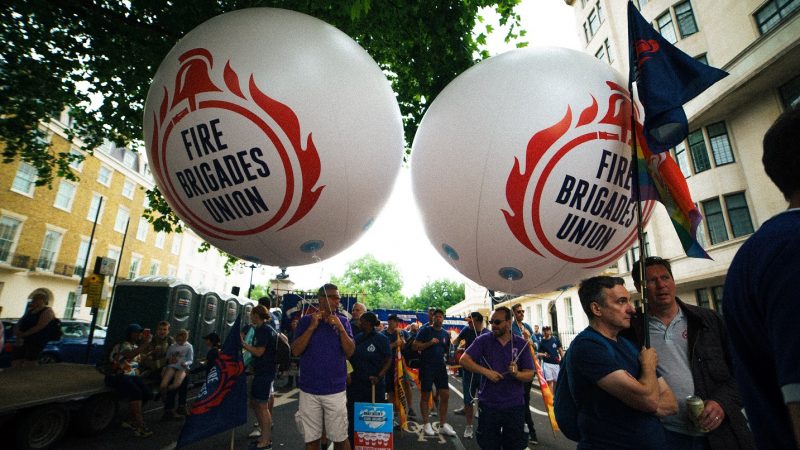Garment workers’ rights in Sri Lanka under threat during COVID pandemic

Advocacy groups and trade unions have released a briefing on workers’ rights abuses in Sri Lanka’s garment industry. Covid-19: A Pretext to Roll Back Sri Lankan Garment Workers’ Rights was signed by a coalition including the AFL-CIO trade union, Clean Clothes Campaign, and Labour Behind the Label.
Sri Lanka’s garment industry employs around 400,000 people and is responsible for 40% of the country’s exports. Most of the work is done in the nation’s Free Trade Zones (FTZ) by migrant women from rural areas. The report details abuses that have taken place during the COVID-19 pandemic, including wage theft, “union-busting”, and inadequate health conditions.
One garment factory, owned by manufacturer Brandix, suffered a virus outbreak in 2020 that workers say was due to poor quality face masks and inadequate social distancing. The outbreak caused 10,000 cases, almost half of those in the country’s southwest region.
Another factory, which supplies Next UK, told its 2,350 workers they would not receive their annual bonus in 2020. Next Manufacturing eventually released half the bonus after employee walkouts and recently handed over the full amount.
War on Want, an anti-poverty charity that contributed to the brief, explains that in Sri Lanka bonuses are a way of attracting workers to jobs that pay inadequate guaranteed wages. “For garment workers the bonus is essential – it pays for basic necessities which their poverty wage alone cannot provide.”
Next Manufacturing has also been accused of illegally refusing to recognise the Free Trade Zone and General Services Employee Union (FTZ&GSEU), which many of its workers recently joined. Allegations of “union busting” are present throughout Sri Lanka at factories that supply George at Asda, Superdry, TomTailors, and Hugo Boss.
Early this month, the Business and Human Rights Resource Centre (BHRRC) released a similar report showing how more than 9,843 garment workers face wage theft at eight factories in different countries during 2020. The report named apparel brands responsible such as H&M, Nike, and Levi Strauss.
In a separate article, BHRRC researchers accused brands of irresponsibly cancelling orders for goods already produced to avoid pandemic losses. The loss of orders has caused downward pressure on factories where rights abuses take place.
Clean Clothes Campaign (CCC), the garment industry’s largest advocacy group, said the relative smallness of Sri Lanka’s garment industry allowed abuses to exist “under the radar of large-scale international scrutiny”. They and the brief’s authors called on brands to be responsible for their supply chain:
Instead of monitoring how workers’ in their supply chains were treated during this crisis, brands and retailers resorted to cancelling orders, delaying payments, further pushing down already low prices. Instead of pushing their suppliers to uphold workers’ rights during these challenging times, brands and retailers turned their back on manufacturers, leaving them free to trample worker rights and benefits at a time when they are most desperately needed.
Anton Marcus, joint secretary of the FTZ&GSEU said:
Employers have during the pandemic used various tactics to push employees out of employment, often without paying legally entitled compensations, and are arguing that they cannot pay full wages and bonuses, even though they are massive companies. Brands and suppliers must take responsibility for the workers in their supply chain.
Meanwhile, trade unions and campaigners have also launched the #PayYourWorkers campaign to demand brand’s take responsibility for garment workers’ struggles.
Covid-19: A Pretext to Roll Back Sri Lankan Garment Workers’ Rights is available here.
PS. We hope you enjoyed this article. Bright Green has got big plans for the future to publish many more articles like this. You can help make that happen. Please donate to Bright Green now.
PPS. Bright Green has an exciting series of events coming up. Join us for debates, interviews and much more.




Very good article. We live in one world. Completing my census form last week, I declared myself as “…citizen of the world…” when asked my nationality.
That will not destroy our disastrous rape of the world by itself unfortunately.
The Green Party should prioritise protest against retailers selling cheap goods and bad food, so that it is at least equal to our largely pointless electoral activities.